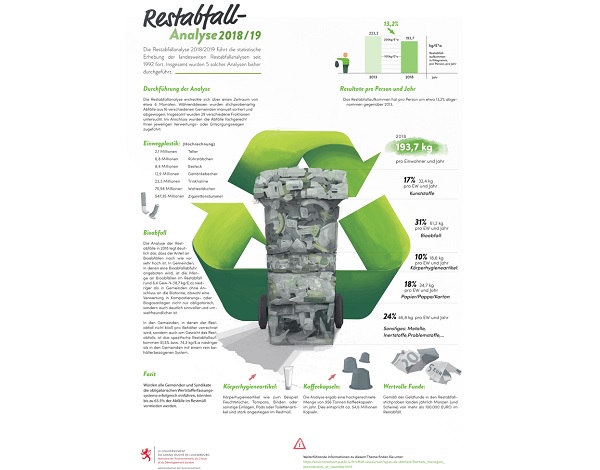 Credit: MECDD
Credit: MECDD
Luxembourg's Ministry of the Environment yesterday published the results of its residual waste analysis, according to which residents threw away almost 194 kg of waste per capita in 2019.
The analysis revealed that the volume of residual waste decreased by around 13.2%, from around 223.2 kg per inhabitant per year in 2013 to 193.7 kg per inhabitant per year in 2019.
Although the amount of problematic substances, such as medication, batteries, electronic waste and paint, declined slightly since the 2013/14 analysis, the amount of hygiene products thrown away has risen sharply. Products that fall into this category include wet wipes, nappies, tampons, plasters and pads. Nappies made up a large part of this waste, since they fill the non-recyclable waste bins quickly due to their weight and mass. The Environment Ministry has thus suggested cloth nappies as a waste-saving alternative.
In addition, the analysis showed an increased amount of disposed coffee capsules: 956 tonnes in 2018/19, or approximately 54.6 million capsules. In 2013, the figure was around 40.8 million capsules, despite separate collection systems in specialist shops.
The analysis also showed that the amount of organic waste remained very high (up to 30% of residual waste). In municipalities where organic waste removal is provided, the amount of organic waste found in residual waste was around 6.4% lower in weight (18.7 kg / ea) than in municipalities without organic waste bins. The analysis thus stated that if all municipalities successfully introduced the mandatory recycling systems, up to 63.5% of waste in residual waste could be avoided.








